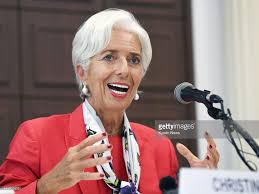The International Monetary Fund (IMF) has called on the Nigerian government to ensure the confirmation of nominees for appointments into the Board of the Central Bank of Nigeria (CBN) and members of its Monetary Policy Committee (MPC) .
The Fund’s advice, which was contained in the IMF Article IV Consultation with Nigeria reflected that directors of the Fund canvassed this position in the interest of the economy.
The Directors also commended the CBN’s monetary policy measures which believed should continue until inflation is within the single digit target range.
The Fund also recommended the continued strengthening of the monetary policy framework and its transparency, as some directors recommended a higher monetary policy rate, a symmetric application of reserve requirements, and non-direct financing of the economy by the apex bank.
The document also raised hope on the state of the economy, but made several recommendations including need for the country to revive the non-oil sector.
The Executive Board of the IMF which concluded the Article IV consultation with Nigeria on March 5 while noting that Nigeria is exiting recession still observed the fragility of the economy.
It would be recalled that the CBN’s Monetary Policy Committee’s meeting scheduled for January 22nd and 23rd this year could not hold due to the failure of the Senate to approve nominees to replace eight members of the committee whose tenure expired last December.
By the provisions of the apex bank’s enabling law, the MPC requires six members to form a quorum, with two expected to be the CBN Governor and a Deputy Governor of the apex bank.
President Buhari had appointed and forwarded the list of the new members for the MPC to the National Assembly for approval..
At its last meeting held on 20-21st November last year, the members decided to sustain the policy rates whilst emphasising the need to consolidate on gains in external balance and domestic price stability.
The 6th meeting for the year was held against the backdrop of moves by the apex bank to begin phasing out accommodative monetary policy put in place to sustain growth associated with rising commodity prices and improving domestic macroeconomic conditions.






